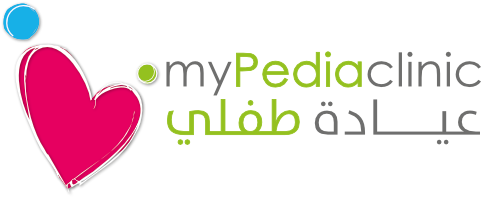Acid reflux occurs frequently in healthy newborns. Reflux is not a cause for concern as long as your infant is healthy, happy, and growing normally. Your kid with gastroesophageal reflux or GER will gain normal weight, have no trouble feeding, and will not exhibit any serious respiratory or neurobehavioral symptoms.
In rare situations, infant acid reflux can cause weight loss or growth delays compared to other children of the same age and gender. These signs could point to a medical condition – GERD.
What is acid reflux in infants: GER vs. GERD
The normal, physiological process of stomach contents running back up into the esophagus, causing regurgitation or spit-up, is referred to as acid reflux or Gastroesophageal Reflux (GER). It is frequent in infants, particularly during the first year of life. In healthy babies, GER rarely causes difficulties or significant discomfort and usually resolves on its own as they grow older. On the other hand, Gastroesophageal Reflux Disease (GERD) is a more severe and persistent form of gastroesophageal reflux. It occurs when stomach contents reflux produces troubling acid reflux symptoms or complications. Infants are less likely to develop GERD than older children and adults, although it can still happen.
What causes infant acid reflux and GERD?
The lower esophageal sphincter is a muscle that works as a valve between the esophagus and the stomach. This muscle relaxes to allow food to move from the esophagus to the stomach when your infant swallows. This muscle generally remains closed, preventing stomach contents as from flowing back into the esophagus.
The lower esophageal sphincter muscle is not fully grown in babies who experience reflux, allowing stomach contents to back up the esophagus. Your baby will spit up (regurgitate) as a result of this. Your baby will no longer spit up once their sphincter muscle has fully developed.
In infants with GERD, the sphincter muscle weakens or relaxes when it should not. GERD, unlike GER, is associated with acid reflux complications. If your baby shows any of the following signs or acid reflux symptoms, contact a good pediatrician near you:
- Refusing to eat
- Spitting frequently
- More irritable and fussy than usual
- Have trouble settling down, or experience difficulty sleeping
- Not gaining weight adequately or is losing weight
- Crying and/or arching their back during feeds that indicates pain
- Spitting up blood or a greenish spit
- Increase in spit-up frequency or intensity
- Their belly is large, bloated, or firm
- Respiratory symptoms such as wheezing and coughing
Furthermore, notify your Pediatrician if your baby does not appear to be gaining weight or has fewer wet and dirty diapers, as these could be signals that not enough of what they are eating is staying down.
How frequent is acid reflux and GERD in infants?
Babies frequently experience reflux. During the first three months of life, almost all babies spit up often. Between the ages of 12 and 14 months, they normally stop spitting up.
GERD is very frequent among newborns. It is most common in 4-month-olds. By their first birthday, only 5% of babies continue to have GERD.
How is infant acid reflux diagnosed?
Your Pediatrician will begin with a physical assessment and will ask you questions about your kid’s symptoms. Make sure to tell your doctor everything that you’ve noticed. If your little one is healthy, growing normally, and appearing content, testing is usually unnecessary. Although, in some circumstances, your doctor might recommend
- Blood and urine tests to identify or rule out potential reasons for repeated sickness and inadequate weight gain.
- Esophageal manometry test to assess the esophageal muscle strength. It can determine whether your child has reflux or swallowing issues. A little tube is inserted into your child’s nostril, down the throat, and into the esophagus. The pressure produced by the esophageal muscles at rest is then measured.
- Esophageal pH monitoring to measure acidity. Your doctor will introduce a small tube through your baby’s nose or mouth and into the esophagus. The tube is connected to a device that measures acidity. The other end of the tube is connected to a small monitor outside your kid’s body. This monitors their pH levels for the next 24 to 48 hours. During this period, your baby is free to return home and resume their normal activities. You will be asked to keep a note of any symptoms your kid experiences that may be related to reflux such as gagging and coughing. You will also be asked to keep track of the time, type, and quantity of food your kid consumes. The pH levels of your child are measured and then compared to their activity at that time.
- X-rays to detect digestive tract issues such as blockage. An X-ray can also detect signs if your infant’s stomach contents have entered their lungs.
- An upper endoscopy can be performed to collect tissue samples for analysis. Your doctor will insert a special tube (endoscope) with a camera lens and a light into your baby’s esophagus, stomach, and upper part of the small intestine. Endoscopy is frequently performed under general anaesthesia on newborns and children.
How can you treat infant acid reflux?
The only treatment required for newborns with gastroesophageal reflux is to remember that the symptoms are normal and will pass. Infants suffering from GERD require treatment, which usually begins with conservative methods.
-
Changes in lifestyle
In breastfed babies, acid reflux is less common and less severe. If your baby is formula-fed, these adjustments could improve reflux:
- Try to breastfeed if possible: Breastfeeding is ideal for infants with reflux since breast milk digests twice as quickly as formula.
- Feed your baby in small amounts at regular intervals: It helps in minimizing stomach pressure and reduces the amount of acid reflux. To achieve proper growth, it is vital to maintain an acceptable total amount of formula every 24 hours. While awake, feed your infant every two to three hours. This could mean limiting the number of ounces your baby receives at each feeding.
- Find nipples with smaller holes: To prevent air gulping during bottle feed, keep the nipple filled with milk throughout the feedings. Look for bottles that are made to limit the amount of air your baby inhales during feedings.
- Add thickening agents: Food thickening is supposed to help prevent stomach contents from going up into the esophagus. Add oatmeal cereal to your baby’s bottle of formula or breastmilk. The American Academy of Pediatrics recommends parents use oatmeal instead of rice for babies with gastroesophageal reflux in response to concerns over arsenic in rice. Stay away from commercial thickening agents. If you’re going to mix oatmeal cereal into your pumped breast milk, do it right before feeding your baby. Because breast milk enzymes can break it down, which means it won’t be of any help to your baby’s reflux. In case you’re mixing it in formula, it’s best to do it no more than 20 – 30 minutes before feeding your baby. In this case, you might need a bottle with a larger nipple size for the oatmeal to flow. Paediatricians usually advise waiting until your baby is 4 to 6 months old before starting solid foods. Therefore, before attempting this approach of adding oatmeal cereal, consult with your doctor.
- Burp your baby in between feedings: Bottle-fed newborns should be burped after 1 to 2 ounces (or more frequently if they eat less). When breastfed babies pull off the nipple, burp them. Burping releases the air your newborn is eating and reduces stomach pressure.
- Don’t overfeed your baby: Only give your infant the prescribed amount of formula or breast milk.
- Change your diet: Trace amounts of what you eat make their way into your breast milk. Certain meals and beverages might cause discomfort in you, and the same is true for your nursing infant. Remove immunogenic foods from your diet. Caffeine, chocolate, garlic, and some gas-producing veggies such as cabbage, may aggravate acid reflux in your baby. Your infant may also be intolerant to proteins found in dairy, soy, and eggs. If you see increased fussiness in your baby after eating certain foods, try removing them from your diet to see if their symptoms improve.
- Hypoallergenic formulas: If your baby is allergic to cow’s milk protein, try hypoallergenic formulas. Change formulas only after consulting with your doctor.
- Keep your baby upright during and after feeding: Keep your baby upright for at least 30 minutes after feeding, as well as raise cribs and diaper-changing tables by 30 degrees. Your baby might spit up or have heartburn if you place them down or put them to sleep too soon after feeding. To prevent abdominal compression, don’t place your infant in a car seat or chair, and don’t let them slouch. An upright posture can help to reduce discomfort and spitting.
- Always place your infant on their back on a firm mattress: Make sure there are no thick blankets, cushions, loose objects, or plush toys in the crib or sleeping area.
- Postpone playtime after meals: Do not shake or bounce your baby shortly after a meal – the extra movement increases the chances of spitting up or vomiting.
- Don’t use diapers and garments that are too tight: Tight clothes or diapers might place extra strain on your baby’s tummy, making them fussy.
-
Medications
Medications are not advised for infants with uncomplicated reflux since the medications can have complications such as limiting iron and calcium absorption and raising the risk of developing specific intestinal and respiratory infections.
If feeding and postural modifications do not alleviate your newborn’s GERD and they continue to have trouble feeding, sleeping, and growing, consult the best pediatrician in Dubai. Your pediatrician may prescribe medications to reduce the amount of acid in your baby’s stomach.
-
Surgery
Surgical methods for GERD in babies may be considered only in extreme circumstances. Surgery may be an option if medications are ineffective or there are serious complications.
Is gripe water safe?
Although you may be tempted to try gripe water to relieve GERD symptoms, there is no scientific evidence that it works. According to the World Health Organisation, feeding anything other than breast milk to infants under 6 months of age could increase the risk of gastrointestinal irritation, bacterial infection, and severe allergies.
Gripe water can potentially cause serious difficulties with your infant’s blood chemistry if given frequently.
If you want to use natural therapies to cure your child’s acid reflux, consult with a kids specialist in Dubai. Remember to choose remedies that are both safe and effective.
If you have any concerns regarding your baby or have questions, contact the best pediatric clinic in Dubai.
myPediaclinic – the best pediatric clinic in Dubai
Our experienced award-winning Pediatricians at myPediaclinic in Dubai Healthcare City help young children have a stress-free and relaxing visit. As one of the most trusted and kid-friendly clinics in the country, the doctors and staff at myPediaclinic are focused on delivering quality treatment and consultation for the long-term health and well-being of their patients.





